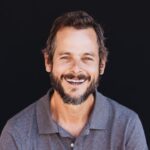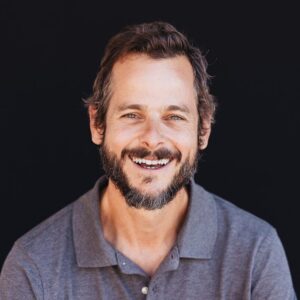This essay was first delivered as a talk at the MAHA Institute Roundtable at the Willard Hotel in Washington, D.C. on May 15, 2025. The views expressed are my own.
Despite the years-long corrosion of our health—a corrosion Americans of all political stripes have noticed—a mere six months ago the press, when writing about Robert F. Kennedy Jr., put the phrase chronic disease epidemic in quotation marks as if it were a conspiratorial, expedient, barmy fixation peculiar to Kennedy’s “kooky” politics. How things have changed. Now the press—kicking and screaming, one imagines—cops to our corroded, ominous health and at times seems to even salute some of Kennedy’s many initiatives. And I can’t tell you how many emails a week I receive from my Republican mother about the boons of organic gardening and the shenanigans of Big Pharma. Among other things, RFK Jr. has enlarged the sayable. This is nothing paltry.
But a defining of terms is in order. What exactly is health? What do we mean by that word? What is a proper understanding of it? To move too quickly now is to put the walls up before the foundation.
But a defining of terms is in order. What exactly is health? What do we mean by that word? What is a proper understanding of it?
By my lights, I believe that to restore our health we need to restore a reverent, sacramental vision.
Christianity, as we may recall, is flooded with such a vision. “The earth is the Lord’s, and the fulness thereof: the world and they that dwell therein.” “All things were made by him; and without him was not anything made that was made.” “For thou shalt be in league with the stones of the field, and the beasts of the field shall be at peace with thee.”
Our homegrown Christian prophet Wendell Berry memorably articulates this vision thus: “We are holy creatures living among other holy creatures in a world that is holy.”
And this reverent, sacramental vision—a vision sensible of the holy; of a world charged with the grandeur of God—logically asks us to honor the divine web of countless relationships of which we are part—the relationships, for example, among medicine, food, agriculture, culture, land stewardship, the economy, and government. To honor this web requires imagination.
Buddhism gives us a vivid image of the web of relationships through the metaphysical concept of Indra’s Net, that infinitely gigantic net where at each knotting place a jewel is set. “The universe is considered to be a vast web of many-sided and highly polished jewels,” explains scholar David Barnhill, “each one acting as a multiple mirror. In one sense each jewel is a single entity. But when we look at a jewel, we see nothing but the reflections of other jewels, which themselves are reflections of other jewels, and so on in an endless system of mirroring. Thus each jewel is the image of the entire net.”
The current movement to make our country healthier notably has privileged the health of children, seemingly understanding that the child is an image of the entire net of which she is part. She reflects and mirrors everything around her. She is an image of the whole.
If our country’s medicines, farms, foods, and homes are toxic, in other words, she will be toxic. If the gifts given to us by God—the rivers and mountains, forests and deserts, oceans and plains—are abused, she suffers abuse, too.
Health, in other words, is not a thing apart.
Health, in other words, isn’t a matter of mere self-concern, of individual well-being, since everything hangs together with everything else. Proper health considers “everything else.” Proper health understands that health, wholeness, and holiness share an etymological root. Proper health understands that life is a unity and that to heal properly we must honor that unity. Proper health asks that we become aware of the endless mirroring. We can no longer afford to specialize and compartmentalize our way to health. We must, in fact, de-specialize, un-fixate. Or at least honor specialization while recognizing that without vigilant attendance to the whole, to the web of relationships, specialization can be dangerous, for it can be blind to the dynamic interaction of everything with everything.
Vaclav Havel’s political philosophy was “responsibility as destiny.” Politics, he believed, makes itself legitimate by transcending the world of mere politics, transcending “speculations, calculations, intrigues, secret deals, and pragmatic maneuvering” and orienting itself to a “deep sense of personal responsibility to the whole.” We might amend Havel’s ennobling philosophy now to “responsibility to the whole—to a holistic vision—as destiny.”
The implications of responsibility to the whole—to a holistic vision—are, one understands after even a bit of reflection, inconveniently exacting. The implications ask of us a transformation of many current attitudes, habits, and values. The implications ask of us another American Dream, a dream no longer premised on conspicuous consumption and dollars in the bank. The implications ask that—invoking Wendell Berry again—we “achieve the character and acquire the skills to live much poorer than we do.” This harder way will prove to be the only enduring way. The edgeless dream of our economy—an economy based on an illusive limitlessness of resources and the promise of opulent financial prosperity for all—is not a dream friendly to the restoration of our health. This dream is not only an ecological impossibility; it is an ecological crucifixion. “To save the life of a single parrot or monkey is truly admirable,” says Gary Snyder. “But unless the forest is saved, they will all die.” The same goes for a child. If we attempt to save a child while savaging the world she lives on, we err tragically. The challenge of this movement—and this moment—is to live into a true holism. The challenge of this movement—and this moment—is to privilege an American Dream founded on a saner, deeper understanding of plenitude.
The challenge of this movement—and this moment—is to privilege an American Dream founded on a saner, deeper understanding of plenitude.
Mercifully, the viewpoint in the paragraph above is no longer a “left-coded” viewpoint. The waggish title of a seminal book of the conservative movement—Crunchy Cons: How Birkenstocked Burkeans, gun-loving organic gardeners, evangelical free-range farmers, hip homeschooling mamas, right-wing nature lovers, and their diverse tribe of countercultural conservatives plan to save America (or at least the Republican Party)—points to change. The author, Rod Dehrer, holds that “modern conservatism has become too focused on money, power, and the accumulation of stuff’ and that “being a truly committed conservative today means protecting the environment and standing against the depredations of big business.” In his book Dehrer argues that “a conservatism that does not practice restraint, humility, and good stewardship—especially of the natural world—is not fundamentally conservative.”
And just as we must honor a holistic vision, we must work together as a whole. To be effective this movement must transcend partisanship. Politics today—to borrow from Henry Adams—can seem little more than a systematic organization of hatreds. The status quo now turns on an axis of almost comically reductive divisiveness. And yet despite appearances, nowhere are we disjoined. We Americans are members of one another yet. To make our country healthy again Republicans need to work with Democrats, MAHA folks need to work with environmentalists, and so on. This will require privileging the commonweal above the ego’s fear of guilt by association. This will require freeing ourselves from what William Irwin Thompson calls “apartheid of the good.” The failure to do so reinforces the partiality—the lack of fidelity to the whole—that is making us unwell. In short, this moment demands that we invite each other out of exile.
We also need to understand—as I imagine all of us here do—that the Department of Health and Human Services alone cannot heal us. Such a belief would be the height of folly. While government can be helpful (and harmful), we know government is not our savior. Healing by fiat could never be enough. To heal we must take responsibility in each of our lives—for ourselves, for our loved ones, and for our particular, placed communities. And if we Americans don’t put down our screens and return carefully to our localities, to our streets, woods, cul-de-sacs, apartment buildings, churches, rec centers, creeks, and cafes, no array of bold ideas and bold political acts can help us, and we all should start sampling coffins. And the false frontier of Mars will not save us, despite what some believe. “Vine a vivir en este mundo,” wrote Pablo Neruda. I came to live in this world. In other words, we need to return to where we’ve always been.
Further, we might recall Mr. Havel again who said: “The main task in the coming era is a radical renewal of a sense of responsibility. It is my belief that there is only one way to achieve this—we must discover a new respect for what transcends us…for the earth, for nature, for life, and for reality.”
Havel’s words are particularly meaningful as they bring us to the root of our predicament. They suggest an answer to the question some might be asking: “Why is health so important after all?”
Addressing our crisis of health is a way to honor the gift of being alive and to honor the transcendent mystery that gives us this gift. We are privileged to be here, alive and together, and therefore ought to proceed with appropriate reverence.
Image Credit: Gustav Klimt, “Apple Tree” (1912)






7 comments
Pamela A Schoenfeld
Well said: “we must take responsibility in each of our lives—for ourselves, for our loved ones, and for our particular, placed communities.”
It starts with taking responsibility for one’s own health and making choices that aren’t always easy in the moment. But eventually, these choices become a way of life and a way to inspire others.
Josh P
This is excellent, thank you!
Teddy
Thank you, Josh.
Debra Sheldon
Teddy, It was so great to have you with us at the Round Table. I appreciate your voice and devotion. Your friend in responsibility to health and life, Debra
Teddy
Thank you, Debra.
Randolph Severson
A wonderful essay! Beautifully phrased, “Addressing our crisis of health is a way to honor the gift of being alive”. A sublime call to reverence. Yeats: “My medieval knees lack health until they bend.”
Teddy
Thank you, Randolph. Your words always enrich me. And that Yeats line is a meaning-filled beauty.
Comments are closed.